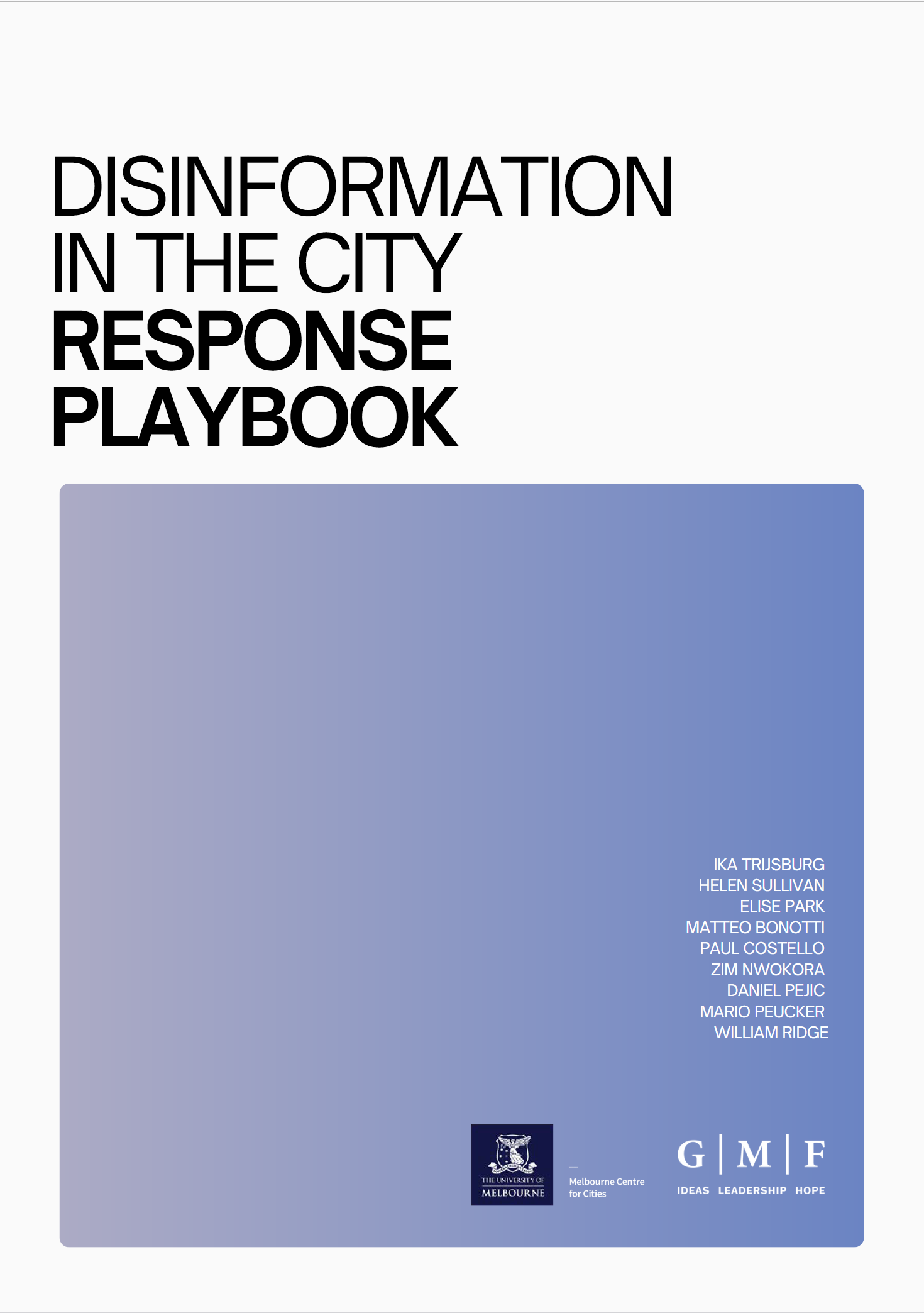Disinformation in the City
Enhancing Local Government Response to Disinformation
In 2025, mis and disinformation have once again been named the top global risks of the immediate term by the World Economic Forum. Disinformation is a growing, global challenge with profound impacts on cities and local democracy.
Local governments are responsible for decisions and policies that shape people’s daily lives, and as most aware of the community fault lines that are fertile ground for disinformation, they are well positioned to respond when issues arise. However, research, analysis, and policymaking related to disinformation have remained at the national and international levels, rarely meeting the issue on the ground at the local level.
The work of the Disinformation in the City project focuses on informing and guiding local government policies and practices to counter disinformation and ultimately to strengthen democracy.
In cities, disinformation sometimes manifests itself in physical events, including protests and disruptions. It also has individual impacts for political, institutional, and community leaders and staff. Disinformation affects the functioning of city administrations and elected bodies, impacting governance and policymaking. It also impacts communities, reducing mutual trust and increasing division and polarization.
Disinformation commonly exploits existing social fault lines and polarization. In cities, the fault lines targeted by disinformation center around First Nations, migrants, cultural diversity, gender and sexual diversity, health and wellbeing, sustainability and climate issues, and urban planning. Understanding how disinformation spreads, and how to respond effectively, is critical for local governments.
This project is a collaboration led by the MAV with the Australian National University along with a core interdisciplinary research team from Monash University, Deakin University, Victoria University and the University of Melbourne. It is highly applied and includes policy-oriented outputs, expert training, peer learning and capacity building opportunities.
Local governments are dynamic, innovative and locally embedded making this sector uniquely positioned to respond to disinformation. This project provides new resources, networks and skills to better prepare and respond effectively. Increasingly recognised by those at all levels seeking to strengthen the resilience of democracy.
The Disinformation in the City project produces a range of outputs and supporting materials including a handbook, toolkit and resources for local governments, training and masterclass programs for councilors and staff, and a range of convenings to support sector development and capability uplift.
Core Research Team
Ika Trijsburg
Ika Trijsburg is Head of Democracy and Diplomacy at Municipal Association of Victoria and Director of Urban Analytics at the ANU Institute for Infrastructure in Society in the Crawford School for Public Policy. She also holds a Visiting Fellowship with the German Marshall Fund of the United States and is a Research Associate with the Initiative for Peacebuilding at the University of Melbourne. Ika draws on diverse sector expertise to assist cities to address complex challenges to democracy. She leads the Disinformation in the City project across five Australian universities and was lead author of the world first Disinformation in the City Response Playbook in 2024, co-created with 40 cross-sector experts globally. Ika has provided policy guidance to key actors globally including cities, national governments, G7 RRM, Council of Europe and UN-HABITAT. Ika has a professional background in local government, community health and community sector and has worked in the United States, The Netherlands, Indonesia and Australia.
Research and Reports

